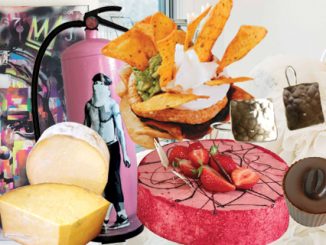
Saving your scraps from landfill
The average Australian household bin is half filled with compostable material. That means 50 per cent of household rubbish thrown into landfill is made up of organic food scraps, coffee grounds and some leafy matter that could otherwise be reused to make glorious compost.
Filling landfill with organic matter is a bad idea not only because of its compostable potential – which we’ll go into later – but also because it has an extremely detrimental impact on climate change. How on earth?
Well, when food scraps are sent to landfill, they rot beneath the surface of the earth in an oxygen-free environment, otherwise known as anaerobic, and release methane (CH4) as a byproduct. Methane is a potent greenhouse gas. Indeed, the impact of methane on climate change is around 25 times greater than carbon dioxide (CO2).
About 3 per cent of Australia’s total greenhouse gas emissions come from organic matter rotting anaerobically in landfills. That is about as much as the entire country’s aviation industry. So simply throwing your leftovers in the bin is actually augmenting environmental instability…
Not to mention the energy used in petroleum just to transport it, and of course, the waste of all that energy still chillin’ in the food scraps. The cool thing about Mother Earth is that she’s cyclical – fruits grow, are eaten, and any thing left over can be recycled to make fruits grow again. Why put it in landfill when it could be delicious food for your garden?
HoboGro is one community composting collective that works to minimise food waste, promote biodiversity and provide a final product that people can use to grow their own food. The organisation is volunteer-run, and operates out of Addison Road Community Centre in Marrickville. Volunteers collect organic scraps from Eveleigh Markets in Redfern, as well as leaf litter from the streets, and turn it into beautiful compost. They use aerobins to keep the compost heaps oxygenated and producing a nutritious liquid fertiliser that is sold on Sundays at the Addison Road Market!
There’s none of that nasty methane byproduct that comes when food decomposes without oxygen.
HoboGro stands for Help Others Build Opportunities, and actually begun as a project connecting and inspiring adults to give back to the earth. Marina da Silva, volunteer at HoboGro, describes their wonderful work as ‘horticultural therapy’.
A composting system can also be started at home using old garbage bins, wooden boxes, or in a simple heap. The system requires four components to work effectively: green ingredients, such as kitchen scraps and weeds; brown ingredients, such as leaves and woody cuttings; oxygen and water. If you don’t have the handy aerobins that HoboGro use, oxygen can be provided by simply turning the heap regularly.
Methane sucks. Oxygenated compost rocks. You can talk to the good folks at HoboGro on Sundays at the Addison Road Markets.
Words by Lucia Moon


